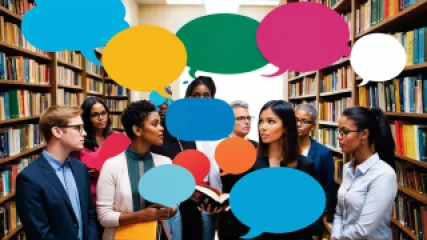Exploring the Psychology of Belief: A Step-by-Step Guide
Beliefs play a fundamental role in shaping our thoughts, emotions, and behaviors. They influence how we perceive the world, interpret experiences, and make decisions. The psychology of belief explores the intricate processes behind belief formation, development, modification, and exploration. Understanding the psychology of belief can provide valuable insights into our own beliefs and help us navigate the complex landscape of human cognition.
What Are Beliefs?
Beliefs are deeply ingrained convictions or assumptions about reality that individuals hold to be true. They are formed through a combination of personal experiences, social interactions, cultural influences, and internal cognitive processes. Beliefs can be conscious or unconscious and can range from mundane everyday beliefs to deeply held religious or philosophical convictions.
Beliefs serve several important functions in our lives. They provide a sense of meaning and purpose, shape our identity, guide our behaviors, and influence our emotional well-being. Beliefs also play a crucial role in decision-making, as they help us evaluate options, assess risks, and anticipate outcomes.
Belief Formation
Belief formation is a complex process that involves multiple factors. It begins with the acquisition of information or experiences that are relevant to a particular belief. These inputs can come from various sources such as personal observations, education, media, and interpersonal interactions.
Once exposed to new information, individuals engage in cognitive processes to evaluate its credibility, consistency with existing beliefs, and relevance to their lives. Confirmation bias, for example, can lead people to selectively seek and interpret information that aligns with their pre-existing beliefs, reinforcing them further.
Social influences also play a significant role in belief formation. People tend to conform to the beliefs and opinions of their social groups, seeking validation and acceptance. This social aspect of belief formation can lead to the spread of shared beliefs within communities and the formation of collective identities.
Belief Development
The development of beliefs is a dynamic process that occurs throughout our lives. As we grow and learn, our beliefs can evolve and change in response to new information and experiences. Belief development can occur through various mechanisms:
- Direct Experience: Personal experiences can shape our beliefs by providing firsthand evidence of their validity or invalidity. For example, a positive experience with a particular therapy approach may strengthen one's belief in its effectiveness.
- Indirect Experience: Indirect experiences, such as witnessing the experiences of others or hearing anecdotes, can also influence belief development. Stories of successful weight loss journeys, for instance, may lead individuals to believe in the effectiveness of a specific diet plan.
- Evidence and Reasoning: Logical reasoning and empirical evidence can challenge or support existing beliefs, leading to belief modification. Scientific research, for example, can provide evidence that contradicts or supports certain beliefs.
- Social Influence: Interactions with others and exposure to diverse perspectives can broaden our understanding and challenge deeply held beliefs. Engaging in respectful dialogue and open-minded discussions can facilitate belief exploration and growth.
Belief Modification
Belief modification refers to the intentional process of changing or updating existing beliefs. It can be driven by personal reflection, external feedback, or a combination of both. The following strategies can be employed to facilitate belief modification:
- Critical Thinking: Developing critical thinking skills enables individuals to evaluate the credibility and validity of their beliefs. It involves questioning assumptions, seeking evidence, considering alternative viewpoints, and avoiding cognitive biases.
- Self-Reflection: Engaging in introspection and self-reflection allows individuals to examine the origins, influences, and consequences of their beliefs. This process can help uncover unconscious biases and challenge deeply ingrained beliefs.
- Seeking Diverse Perspectives: Actively seeking out diverse perspectives and engaging in respectful conversations with people who hold different beliefs can broaden one's understanding and challenge existing beliefs. This exposure to alternative viewpoints fosters belief exploration and flexibility.
- Education and Learning: Continuous learning and education provide opportunities for expanding knowledge and revisiting long-held beliefs. Engaging with new information and perspectives can prompt belief modification and growth.
- Therapeutic Interventions: Online counseling services, such as belief exploration sessions, can offer a supportive environment for individuals to examine and modify their beliefs. Trained professionals can guide individuals through the process, providing insights and strategies for belief modification.
The Impact of Self-Limiting Beliefs
Self-limiting beliefs are beliefs that constrain individuals and prevent them from reaching their full potential. These beliefs often stem from negative experiences, societal conditioning, or low self-esteem. Examples of self-limiting beliefs include "I'm not good enough," "I will never succeed," or "I don't deserve happiness."
Self-limiting beliefs can significantly impact various aspects of an individual's life, including their relationships, career, and overall well-being. They can create barriers to personal growth, hinder decision-making, and limit opportunities for success. Overcoming self-limiting beliefs requires self-awareness, challenging negative thinking patterns, and replacing them with more empowering beliefs.
Conclusion
The psychology of belief offers valuable insights into the complex processes involved in belief formation, development, modification, and exploration. Understanding how beliefs are formed and influenced can help us navigate the intricate landscape of human cognition. By actively engaging in belief exploration and modification, individuals can challenge self-limiting beliefs, broaden their perspectives, and foster personal growth.
Disclaimer: This article is for informational purposes only and should not be considered professional or medical advice. If you require assistance with belief exploration or modification, it is recommended to consult with a qualified mental health professional or utilize reputable online counseling services.






